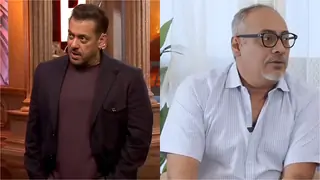| Professor: So class, are we ready? Everyone: Yes Ma'am! Professor: Okay! Let me start by narrating this little joke I read today: Two planets meet. The first one asks: "How are you?" (everyone laughs) Professor: The topic we are discussing today is 'The devastating changes in the Environment'. Humor aside, the joke has an element of truth to it. The issue of the destruction caused by man is serious and puts a question mark on the very existence of not only mankind, but all living beings.
Professor: Now let me give a quick introduction and then we can move on to the main discussion.  Over billions of years, our planet has changed. Right from the time when it was but a humongous molten mass, to its cooling down and origin of life; the slow evolution in accordance with the changes in climes, constitution and environment to the age of man- earth has changed. From times immemorial, man has slowly tried to understand the planet we live on, conquer and harness its energies for a better and more productive life. Change and balance are the laws of nature, and challenging nature to emerge victorious in his quest seemed to have become the cave man's motto. With the advancement of civilization and science, man conquered every milestone and yearned for more. Science helped him conquer land, water and space, made life comfortable, increased the yield of crops and rendered him powerful enough to face all hardships. Unfortunately, that was only one side of the coin.
Belle:*raises hand* Professor: Yes dear! What do you have to say? Belle: Umm.. I read this saying by James D. Carlswell. It says: 'Whenever man builds a better mousetrap, nature immediately comes up with a better mouse'. Professor: Aah! Good way to put it! Sure there is a natural cycle and it's being disrupted at a fast rate- which makes nature answer back in it's own way. So where was I? Yes..
Every action sets off a reaction, and over time, the build-up of reactions to the empire built by man has turned out to be nothing short of devastating. With the advancement of industrialization, science and modern life, building of concrete jungles and smoke clouds and digging deep to relinquish every natural resource available, man's lifestyle and needs have reduced the environment around him to a state where revolt far exceeds repair and change far exceeds balance; as a result, today, we are surrounded by a slew of changes which threaten to wipe us off the face of earth in a matter of years. Be it the rising sea levels or altered climate cycles due to global warming; the scarcity of rain and crops or the changes in flora and fauna due to loss of natural habitat; the various health conditions due to the depletion of ozone layer and the clouds of smoke, or the poisoning of every natural resource thanks to pollution - man has been cornered by destructive forces unleashing their fury; forces, which only a few decades back, had nurtured, protected and enabled him to lead a better life. Today, lands are getting submerged, plants, soil, air and water have got poisoned, pandemics, epidemics, natural disasters and health concerns are on the rise. With every step forward, mankind has also been forced a few more steps backwards. He has now realized that the changes are too many to count and their impact too magnanimous to undo, even with all the advancements his faithful servant Science can provide him. What worsens the situation is the socio-political angle- the earliest signs of water wars, resources being made into a political issue and the countries' highest minds unwilling to accept Treaties for environmental preservation due to economical, safety and competitive concerns. We are unable to fight not only the wrath of nature, but also the nature of man. Is there a solution, or are we too late, and have to comfort ourselves by looking at the silly bright side of longer summer holidays due to global warming, while secretly hoping for a miraculous breakthrough to revert the situation? (Everyone laughs) Is there a way out? Professor: We will address this very important question in a while. First, let's attack the root of the problem. Blossom, would you like to give us a brief idea about the causes and effects? Blossom: Oh sure, Ma'am! |









 Human population has been an ever-growing phenomenon on Earth. The population is increasing at an alarming rate and has ended up as one of the most significant causes of environmental problems, as overpopulation has caused rapid depletion of resources. As our population rises, the consumption rate tends to spike, and so does the pollution. Things worsen when epidemics or a disaster strikes the world.
Human population has been an ever-growing phenomenon on Earth. The population is increasing at an alarming rate and has ended up as one of the most significant causes of environmental problems, as overpopulation has caused rapid depletion of resources. As our population rises, the consumption rate tends to spike, and so does the pollution. Things worsen when epidemics or a disaster strikes the world.






















573